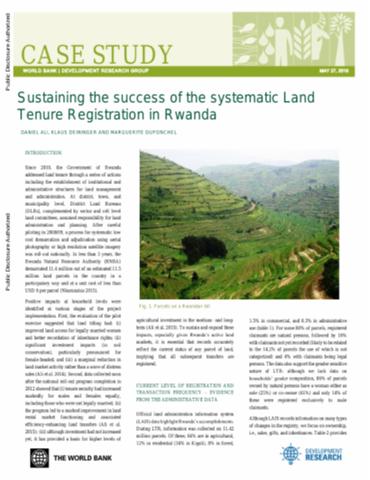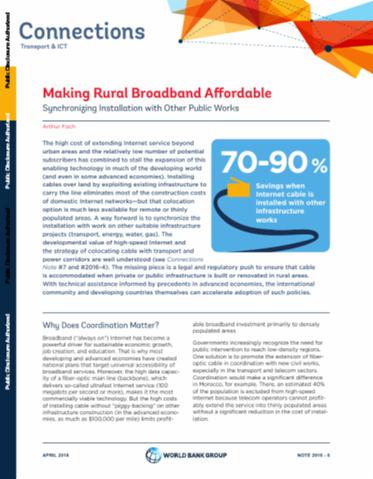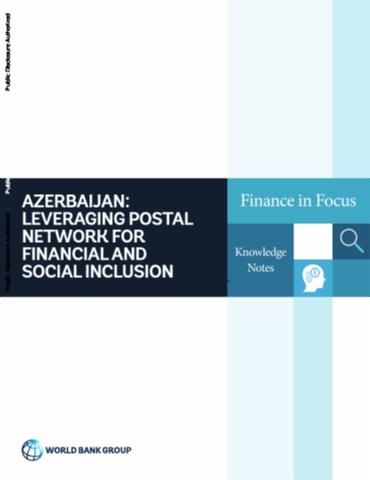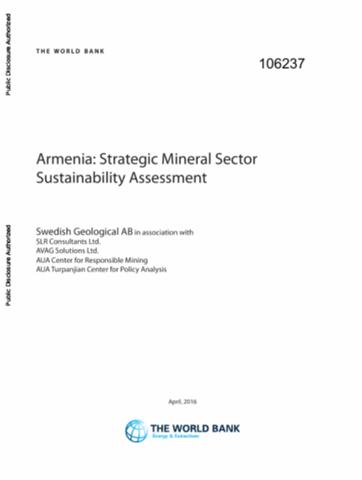The World Bank is a vital source of financial and technical assistance to developing countries around the world. We are not a bank in the ordinary sense but a unique partnership to reduce poverty and support development. The World Bank Group has two ambitious goals: End extreme poverty within a generation and boost shared prosperity.
- To end extreme poverty, the Bank's goal is to decrease the percentage of people living on less than $1.25 a day to no more than 3% by 2030.
- To promote shared prosperity, the goal is to promote income growth of the bottom 40% of the population in each country.
The World Bank Group comprises five institutions managed by their member countries.
The World Bank Group and Land: Working to protect the rights of existing land users and to help secure benefits for smallholder farmers
The World Bank (IBRD and IDA) interacts primarily with governments to increase agricultural productivity, strengthen land tenure policies and improve land governance. More than 90% of the World Bank’s agriculture portfolio focuses on the productivity and access to markets by small holder farmers. Ten percent of our projects focus on the governance of land tenure.
Similarly, investments by the International Finance Corporation (IFC), the World Bank Group’s private sector arm, including those in larger scale enterprises, overwhelmingly support smallholder farmers through improved access to finance, inputs and markets, and as direct suppliers. IFC invests in environmentally and socially sustainable private enterprises in all parts of the value chain (inputs such as irrigation and fertilizers, primary production, processing, transport and storage, traders, and risk management facilities including weather/crop insurance, warehouse financing, etc
For more information, visit the World Bank Group and land and food security (https://www.worldbank.org/en/topic/agriculture/brief/land-and-food-security1
Resources
Displaying 386 - 390 of 4907Sustaining the Success of the Systematic Land Tenure Registration in Rwanda
Since 2010, the Government of Rwanda addressed land tenure through a series of actions including the establishment of institutional and administrative structures for land management and administration. At district, town, and municipality level, District Land Bureaus (DLBs), complemented by sector and cell level land committees, assumed responsibility for land administration and planning. After careful piloting in 2008/09, a process for systematic low cost demarcation and adjudication using aerial photography or high resolution satellite imagery was roll-out nationally.
LGAF Country Report: Zambia
Land Governance Assessment: Country Report
Making Rural Broadband Affordable
The high cost of extending Internet service beyond urban areas and the relatively low number of potential subscribers has combined to stall the expansion of this enabling technology in much of the developing world (and even in some advanced economies). Installing cables over land by exploiting existing infrastructure to carry the line eliminates most of the construction costs of domestic Internet networks—but that colocation option is much less available for remote or thinly populated areas.
Azerbaijan
This paper provides a brief overview of the postal network reform in Azerbaijan and transformation of Azerpost, Azerbaijan’s state postal operator, into an efficient platform for basic financial services delivery throughout the country.
Armenia
This report provides a review of the Armenian mining sector, and assesses its potential to contribute to sustainable economic growth and development. Based on the findings, it provides recommendations for initiatives and actions for the future development of the sector. The report was produced in the period October 2015 to April 2016.










